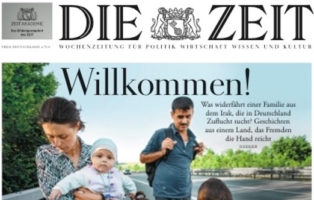This article scrutinizes the securitization of migrants in Hungary and Slovakia at the height of the EU’s migration ‘crisis’. It illustrates how political narratives portrayed migrants as a security threat and how they intersected with EU discourse and practice.
Beatrix Futák-Campbell demonstrates how the logic of securitization was deployed by both governments for domestic political gains. I show that both prime ministers focused on ‘civilizational’ threats or alleged threats to their respective cultures along with economic insecurity, and physical threats they would allegedly create through, inter alia, ‘terrorist’ activities. Their ostensible intentions were to protect the economic, societal and human security of Hungarians and Slovaks, whilst ignoring the (in)security of migrants, and essentially using the ‘crisis’ to gain electoral support for their waning politics. This prioritization contradicted EU policy, thwarting the development of common practice. The securitization used to justify the two governments’ policies and practices raises further questions about EU order and governance including about what are commonly claimed to be EU values.




